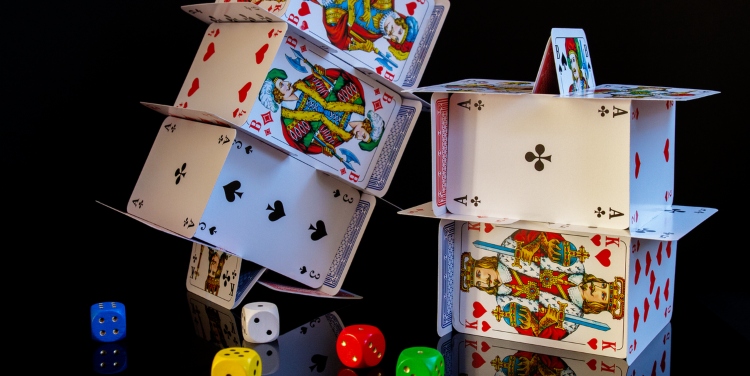Casinos are more than just flashy lights, spinning reels, and the sound of coins hitting metal. Behind the glamour lies a highly sophisticated environment — carefully engineered to keep you playing longer and spending more.
From the architecture to lighting, every detail in a casino is designed using psychology and behavioral science to influence decision-making, attention span, and emotional response. In this article, we’ll explore 10 major casino tactics that subtly manipulate your behavior — plus a few bonus strategies you probably never noticed. Let’s dive into the secret world of casino influence.
1. “What Time Is It?” – The Elimination of Clocks
Believe it or not, one of the most powerful tools in a casino’s arsenal is the absence of time.
Walk into any major casino, and you’ll notice a peculiar omission: no clocks on the walls. It’s not just a coincidence — it’s a calculated move. Many people today don’t wear wristwatches and rely on their phones to check the time. But when you’re immersed in the gaming floor, with sensory overload and no clear signs of time passing, you quickly lose track of hours.
Even if you ask a dealer for the time, chances are they’ve been instructed not to tell you. The more unaware you are of how long you’ve been playing, the more likely you are to stay, bet, and continue chasing your wins (or losses).
Interestingly, some of these same tactics are now used in online casinos. For example, Slotozen Casino offers players not only generous welcome promotions such as Slotozen no deposit bonus, but also a seamless experience with fast payouts, hundreds of slot games, and a platform that keeps players engaged just as effectively as a land-based venue.
Psychological insight: The brain naturally uses environmental cues to estimate the passage of time. Remove those cues, and time begins to feel elastic. This is called “temporal disorientation”, and it’s an essential tactic in the casino playbook.
2. Is It Day or Night? – The Power of Windowless Spaces
Casinos are masters at cutting you off from the outside world. That’s why most don’t have windows — or if they do, they’re restricted to entry points only.
Once you’re inside, there are no views of the sky, no natural light, and no idea whether it’s noon or midnight. Without daylight or street views to ground your internal clock, you are more likely to stay longer and keep gambling.
Here’s why that works:
- Daylight can trigger fatigue and remind you to leave.
- Seeing others outside enjoying themselves may create FOMO or the desire to leave and join them.
- Nightfall can signal bedtime — a natural break point — and casinos want to avoid that.
By keeping you in a sealed, timeless environment, they maximize the chance of prolonged engagement.
3. Atmosphere, Music, and Lighting – Designed for Comfort
Casinos are designed to feel welcoming, safe, and relaxing — like a luxury home with a thrill factor.
- Lighting is intentionally dim and warm. Harsh lights are avoided because they create discomfort and can cause fatigue or overstimulation.
- Carpets have intricate, often wild patterns that are psychologically stimulating and disorienting.
- Music is soft and upbeat — energetic enough to keep you engaged but not too loud to distract your focus.
All of this creates an environment that encourages people to linger longer, relax into the setting, and let go of inhibitions around spending.
Bonus detail: The scent inside many casinos is also controlled. Pleasant, subtle aromas are diffused through ventilation systems to boost mood and encourage continued play. Studies show that certain smells can increase slot machine revenue by up to 50%.
4. Color Psychology – Why Casino Carpets Are So Strange
Have you ever noticed how casino carpets look bizarrely bright, patterned, or even ugly?
That’s not bad taste — it’s strategy. These carpets are designed to:
- Be stimulating and keep players alert.
- Deter people from looking down too long (keeping eyes up = more play).
- Lead players subconsciously through the floor via color and shape pathways.
Wall colors are also carefully chosen—reds, golds, and earth tones dominate because they invoke warmth, richness, and excitement, much like the iconic jerseys of Manchester United old players that stir a nostalgic buzz. This visual stimulation keeps your brain engaged and positively reinforced, which can unconsciously encourage repeat visits.
5. “Near Wins” – The Psychology of Almost Winning
This is one of the most clever and subtle psychological tricks used in casinos: the illusion of almost winning. Known as the “near-miss effect”, this tactic keeps players emotionally invested, even when they’re technically losing.
Slot machines, roulette wheels, and poker hands are structured to deliver just enough small wins — or close calls — to convince players they’re this close to hitting something big.
Examples of near wins:
- A slot machine lands 7 – 7 – cherry, one symbol off from the jackpot.
- In dice games, a player rolls a 5 when they needed a 6 to win.
- In poker, you get four cards to a flush, but miss the final suit on the river.
These outcomes are designed to feel like progress, triggering the same dopamine response in the brain as actual wins. That emotional high creates a false sense of momentum, making players believe a real win is just around the corner.
As a result, people continue playing — not because they’re winning, but because they feel like they’re about to.
6. Maze-Like Layouts – You’re Meant to Get Lost
Casinos don’t want you to leave quickly. That’s why most gaming floors are built like labyrinths — with no direct paths to exits or key services.
Instead of a straight line, you’ll often walk through:
- Curving aisles lined with slot machines and tables,
- Bars and restrooms placed deep inside the gaming area,
- Signage that directs you through “high-action” zones rather than the fastest route out.
These layouts are meant to maximize your exposure to games. Even if you’re heading for a drink or the restroom, chances are you’ll pass something tempting and stop to try your luck.
It’s a classic strategy also used in retail stores — make you walk through more, so you spend more. In a casino, even “accidental” exposure to a new machine or table can lead to unexpected spending.
7. Freebies and “Comps” – Not So Free After All
Casinos love to make guests feel special. Whether it’s free drinks, buffet access, or a complimentary hotel stay, these perks (known as “comps”) are designed to build loyalty and keep you on the floor.
On the surface, it feels generous. But there’s smart psychology behind it:
- Reciprocity: When you receive something free, you subconsciously feel the need to “give back” — often by gambling more.
- Loss aversion: Once you’ve received VIP treatment, it’s emotionally harder to leave. You don’t want to lose access to the perks, even if you’re already losing money.
High-rollers are especially targeted. They might be offered luxury suites, fine dining, event tickets, or even private jet rides. But these benefits are carefully calculated: the casino always ensures the cost of your loyalty is less than your losses.
The bottom line? If it feels too good to be true — it probably is.
8. Token Money – Chips Instead of Cash
Why don’t players use real cash at the tables? Because chips feel different. They’re colorful, lightweight, and detached from actual money value. This is a tactic known as decoupling — separating the action (placing a bet) from the emotional impact of spending.
Spending $100 in chips feels very different than handing over a $100 bill. You’re less likely to hesitate, and more likely to bet aggressively.
Slot machines push this further by converting your money into credits, removing the sense of real-dollar loss entirely. You’re playing in abstract numbers — not thinking about how many coffees, meals, or bills that money could have paid for.
This psychological distance lowers your natural resistance to spending, allowing casinos to benefit from faster, more frequent bets.
9. Bright Winners – Showcasing Jackpots
Have you ever seen a slot machine go wild with lights and sound after someone wins? Or noticed huge “Recent Big Win” displays near the entrance?
This is no accident. It’s a tactic known as social proof — showing you that other people are winning, so you believe you could be next.
Seeing a nearby player win triggers FOMO (fear of missing out). You might think: “If they won on that machine, maybe I will too.” It gives the impression that wins are common — even if they’re extremely rare statistically.
Casinos carefully curate these winning moments:
- Machines light up loudly for small wins, not just jackpots.
- Big winners are sometimes announced across the room.
- Visuals like leaderboards or screens show cumulative payouts.
The message is clear: winning happens here, and you just might be next. And that belief alone keeps people glued to the game.
10. “Play to Earn” – Gamification of Gambling
Modern casinos — especially online platforms — increasingly use gamification to boost engagement. These systems reward activity, not just wins.
Typical gamified features include:
- Earning points or badges for play time,
- Unlocking levels or new games,
- Daily login rewards or streak bonuses,
- Progress bars showing how close you are to the next reward.
These tools mimic video games, where progress itself becomes the goal. Even if you’re not winning money, you’re “achieving” something — completing tasks, leveling up, collecting bonuses.
This shifts your mindset from gambling for cash to playing for status, completion, or satisfaction. And it’s highly effective: studies show that gamified systems keep players active much longer than traditional game formats. You’re no longer just chasing a win — you’re chasing progress. And that’s exactly what the casino wants.
Conclusion: Know the Tricks, Play Smart
Casinos aren’t evil. They’re just really good at what they do — keeping people engaged, entertained, and spending money. Every sound, sight, scent, and layout choice has been designed based on behavioral science and neuroscience.
Understanding these strategies doesn’t mean you can’t enjoy casinos — but it does mean you can approach them with awareness and control.
So the next time you walk into a casino and wonder why time flies, your wallet feels lighter, and you can’t remember when you last blinked — now you know why.
David Prior
David Prior is the editor of Today News, responsible for the overall editorial strategy. He is an NCTJ-qualified journalist with over 20 years’ experience, and is also editor of the award-winning hyperlocal news title Altrincham Today. His LinkedIn profile is here.












































































